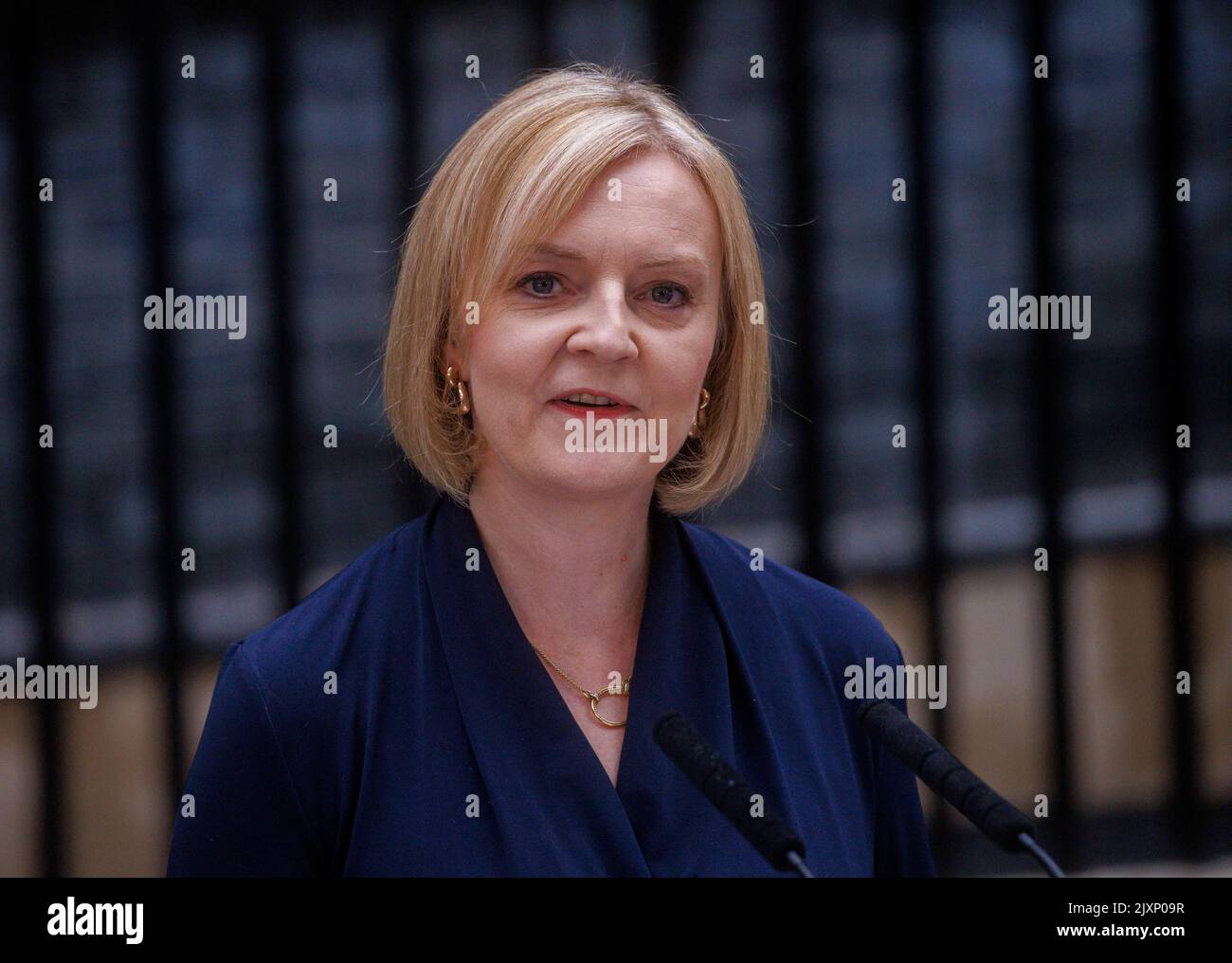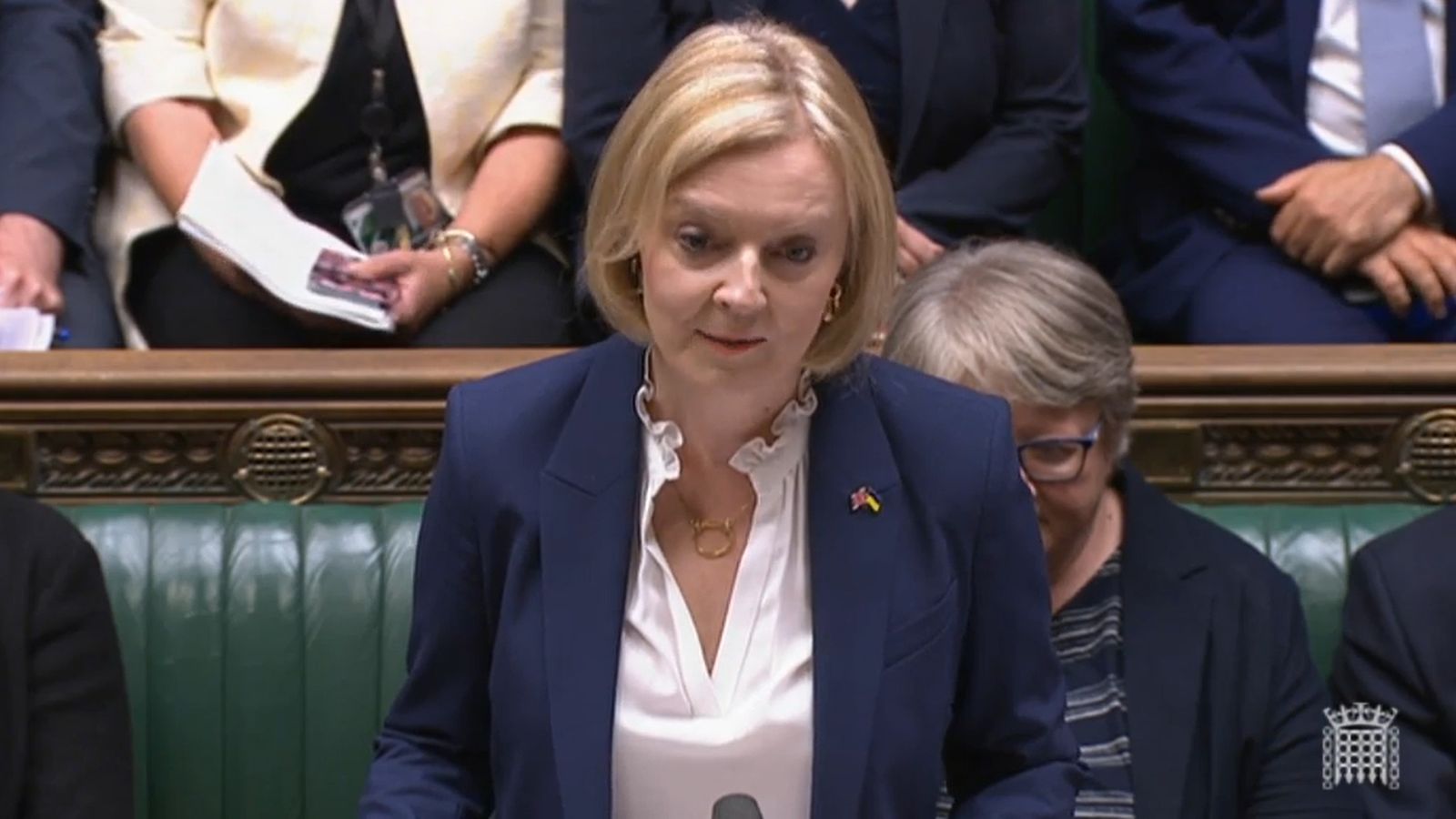In a rapidly evolving world where technology increasingly influences global politics, the connection between leaders like Liz Truss and tech giants like Microsoft deserves closer examination. The intersection of political decisions and technological advancements shapes the future of nations and industries worldwide. Understanding this dynamic is crucial for anyone interested in the intersection of governance and innovation.
As the former Prime Minister of the United Kingdom, Liz Truss has made headlines not only for her bold economic policies but also for her stance on digital transformation and technology. Her tenure coincided with significant developments in the tech sector, including partnerships with global players like Microsoft. This article explores how Truss's leadership style intersected with Microsoft's strategic initiatives, shedding light on the broader implications for both the UK and global tech ecosystems.
From digital infrastructure to cybersecurity, the relationship between political leaders and tech companies is vital in shaping modern governance. This article will delve into the specifics of how Liz Truss's policies influenced Microsoft's operations in the UK and vice versa, offering insights into the future of public-private partnerships in the digital age.
Read also:Lauren Mochen Leaks Unraveling The Truth Behind The Controversy
Table of Contents
- Biography of Liz Truss
- Microsoft's Role in the UK
- Liz Truss's Digital Policy
- The Partnership Between Liz Truss and Microsoft
- Cybersecurity Initiatives
- Economic Impact of Digital Transformation
- Challenges in Public-Private Partnerships
- Future Directions for Tech and Governance
- A Global Perspective on Tech Leadership
- Conclusion
Biography of Liz Truss
Liz Truss, born on July 26, 1975, in Oxford, England, rose to prominence as a prominent figure in British politics. Her career trajectory from a local councilor to the office of Prime Minister was marked by her commitment to economic reform and digital innovation. Below is a detailed overview of her life and career:
Early Life and Education
Truss attended the University of Oxford, where she studied Philosophy, Politics, and Economics (PPE). Her academic background laid the foundation for her understanding of complex policy issues, particularly in the realm of economics and technology.
Political Career
Truss entered politics in 2001, serving as a local councilor before being elected to Parliament in 2010. Her roles included Minister for Women and Equalities, Chief Secretary to the Treasury, and Foreign Secretary. In 2022, she became the UK's Prime Minister, focusing on economic growth and digital transformation.
Biodata
| Full Name | Elizabeth Helen Truss |
|---|---|
| Birthdate | July 26, 1975 |
| Place of Birth | Oxford, England |
| Education | University of Oxford (PPE) |
| Political Party | Conservative Party |
Microsoft's Role in the UK
Microsoft has long been a key player in the UK's tech landscape. The company's investments in cloud computing, artificial intelligence, and cybersecurity have positioned it as a critical partner for governments and businesses alike. Below are some key highlights of Microsoft's activities in the UK:
Cloud Computing
Microsoft Azure, the company's cloud platform, has become a cornerstone of digital infrastructure in the UK. Its adoption by government agencies and private enterprises underscores its importance in facilitating digital transformation.
Artificial Intelligence
Microsoft's AI initiatives focus on enhancing productivity and innovation. The company collaborates with UK universities and research institutions to advance AI capabilities, contributing to the nation's technological competitiveness.
Read also:Nj Parkway Accident Understanding Causes Safety Measures And Prevention
Cybersecurity
With increasing cyber threats, Microsoft's cybersecurity solutions have become indispensable. The company works closely with the UK government to protect critical infrastructure and ensure data security.
Liz Truss's Digital Policy
As Prime Minister, Liz Truss prioritized digital transformation as a means to boost economic growth and enhance the UK's global standing. Her policies aimed to leverage technology for the benefit of citizens and businesses.
Key Initiatives
- Investment in digital infrastructure to improve connectivity.
- Support for tech startups through favorable regulatory frameworks.
- Enhanced cybersecurity measures to protect against cyber threats.
Truss's vision was to position the UK as a global leader in technology, aligning with Microsoft's strategic goals for the region.
The Partnership Between Liz Truss and Microsoft
The collaboration between Liz Truss and Microsoft exemplifies the potential of public-private partnerships in driving innovation. Both parties shared a commitment to advancing digital capabilities in the UK.
Shared Goals
Truss and Microsoft aligned on several objectives, including:
- Promoting digital literacy and education.
- Encouraging research and development in emerging technologies.
- Strengthening cybersecurity defenses.
This partnership demonstrated the importance of collaboration between government and industry leaders in addressing complex challenges.
Cybersecurity Initiatives
Cybersecurity remains a top priority for both Liz Truss and Microsoft. The UK faces increasing threats from cyberattacks, necessitating robust measures to safeguard sensitive information.
Joint Efforts
Truss's administration worked closely with Microsoft to implement advanced cybersecurity protocols. These efforts included:
- Training programs for government employees and private sector professionals.
- Development of cutting-edge tools to detect and mitigate cyber threats.
- Collaboration with international partners to enhance global cybersecurity standards.
These initiatives underscored the commitment of both parties to protecting the UK's digital assets.
Economic Impact of Digital Transformation
The digital transformation spearheaded by Liz Truss and supported by Microsoft had a profound impact on the UK economy. By investing in technology, the government and private sector were able to create new opportunities for growth and innovation.
Key Benefits
The economic benefits of this transformation included:
- Increased productivity through the adoption of advanced technologies.
- Job creation in the tech sector and related industries.
- Enhanced competitiveness in the global market.
These outcomes highlighted the transformative power of technology in reshaping the economic landscape.
Challenges in Public-Private Partnerships
While the partnership between Liz Truss and Microsoft yielded significant results, it was not without challenges. Issues such as data privacy, regulatory compliance, and public trust needed to be addressed to ensure the success of these initiatives.
Addressing Challenges
To overcome these obstacles, both parties focused on:
- Implementing transparent policies to build public trust.
- Ensuring compliance with data protection regulations.
- Engaging with stakeholders to gather feedback and improve initiatives.
These efforts demonstrated the importance of addressing challenges proactively to maintain the effectiveness of public-private partnerships.
Future Directions for Tech and Governance
Looking ahead, the relationship between tech leaders like Microsoft and political figures like Liz Truss will continue to shape the future of governance. Emerging technologies such as blockchain, quantum computing, and the Internet of Things (IoT) will play a critical role in this evolution.
Potential Opportunities
Future opportunities for collaboration include:
- Exploring the potential of blockchain for secure transactions.
- Advancing quantum computing capabilities for complex problem-solving.
- Expanding IoT applications to improve urban infrastructure.
These advancements hold the promise of transforming governance and society in unprecedented ways.
A Global Perspective on Tech Leadership
The intersection of politics and technology is not unique to the UK. Globally, leaders are increasingly recognizing the importance of leveraging technology to address societal challenges. This trend highlights the need for international cooperation and knowledge sharing.
Lessons from Other Nations
Countries such as Estonia and Singapore have successfully integrated technology into their governance models, offering valuable lessons for others. By studying these examples, nations can develop strategies to enhance their digital capabilities and improve public services.
Conclusion
The partnership between Liz Truss and Microsoft exemplifies the potential of collaboration between political leaders and tech companies. By focusing on digital transformation, cybersecurity, and economic growth, both parties have contributed to the advancement of the UK's tech ecosystem. As technology continues to evolve, the importance of such partnerships will only increase.
We invite you to share your thoughts on this article and explore other content on our site. Your feedback is valuable in helping us provide the best information possible. Together, we can continue to explore the intersection of politics and technology, shaping a better future for all.
References:
- Truss, L. (2022). Official Statements on Digital Policy.
- Microsoft UK. (2022). Annual Report on Digital Initiatives.
- Government Digital Service. (2022). Cybersecurity Guidelines.


.jpg/revision/latest/scale-to-width-down/1200?cb=20220911143357)